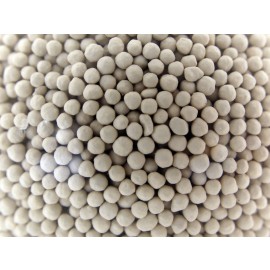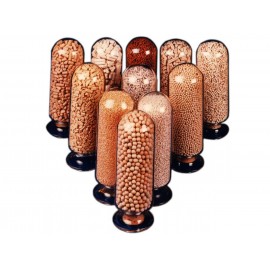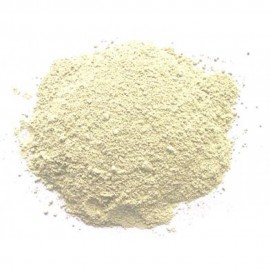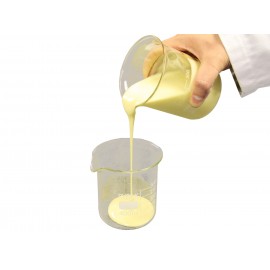Molecular Sieves
Molecular Sieves are synthetic crystalline zeolites in which the atoms are arranged in a definite pattern. Internally, the structure has many cavities inter-connected by smaller pores of a uniform size. These pores are only able to accept and pass to the cavities molecules of the same and smaller size, hence the name molecular sieve.
The water vapour adsorption characteristics are very different from those of silica gel. Molecular sieves can adsorb up to approximately 20% by weight of water before the relative humidity of the surrounding air increases significantly. Any further increase causes a large rise in relative humidity.
These characteristics enable molecular sieves to maintain very low dewpoints (-50°C for 10% by weight of adsorbed water). The material also has the ability to rapidly adsorb water vapour and is capable of maintaining high adsorption efficiency at high temperatures of up to 90°C.
Molecular Sieves are available in four primary generic forms, 3A, 4A, 5A and 13X. Each form has its own specific properties and applications, and all retain a polar preference for adsorption of water.
• 3A is the preferred Molecular Sieves adsorbent for the commercial dehydration of unsaturated hydrocarbon streams.
• 4A is the preferred Molecular Sieves adsorbent for the static dehydration in a closed gas or liquid drying system.
• 5A is the preferred Molecular Sieves adsorbent for the separation of normal paraffin's from hydrocarbons.
• 13X is used commercially for general gas drying, air plant feed purification and liquid hydrocarbon and natural gas sweetening.
4 Item(s)

Molecular Sieves - Beads
Molecular Sieves - Beads
Molecular Sieves - Pellets
Molecular Sieves - Pellets
Molecular Sieves - Powders
Molecular Sieves - Powders

Molecular Sieves - Pastes
Molecular Sieves - Pastes
